- Home
- D. H. Lawrence
Women in Love Page 5
Women in Love Read online
Page 5
CHAPTER V.
IN THE TRAIN
One day at this time Birkin was called to London. He was not very fixedin his abode. He had rooms in Nottingham, because his work lay chieflyin that town. But often he was in London, or in Oxford. He moved abouta great deal, his life seemed uncertain, without any definite rhythm,any organic meaning.
On the platform of the railway station he saw Gerald Crich, reading anewspaper, and evidently waiting for the train. Birkin stood somedistance off, among the people. It was against his instinct to approachanybody.
From time to time, in a manner characteristic of him, Gerald lifted hishead and looked round. Even though he was reading the newspaperclosely, he must keep a watchful eye on his external surroundings.There seemed to be a dual consciousness running in him. He was thinkingvigorously of something he read in the newspaper, and at the same timehis eye ran over the surfaces of the life round him, and he missednothing. Birkin, who was watching him, was irritated by his duality. Henoticed too, that Gerald seemed always to be at bay against everybody,in spite of his queer, genial, social manner when roused.
Now Birkin started violently at seeing this genial look flash on toGerald's face, at seeing Gerald approaching with hand outstretched.
'Hallo, Rupert, where are you going?'
'London. So are you, I suppose.'
'Yes--'
Gerald's eyes went over Birkin's face in curiosity.
'We'll travel together if you like,' he said.
'Don't you usually go first?' asked Birkin.
'I can't stand the crowd,' replied Gerald. 'But third'll be all right.There's a restaurant car, we can have some tea.'
The two men looked at the station clock, having nothing further to say.
'What were you reading in the paper?' Birkin asked.
Gerald looked at him quickly.
'Isn't it funny, what they DO put in the newspapers,' he said. 'Hereare two leaders--' he held out his DAILY TELEGRAPH, 'full of theordinary newspaper cant--' he scanned the columns down--'and thenthere's this little--I dunno what you'd call it, essay,almost--appearing with the leaders, and saying there must arise a manwho will give new values to things, give us new truths, a new attitudeto life, or else we shall be a crumbling nothingness in a few years, acountry in ruin--'
'I suppose that's a bit of newspaper cant, as well,' said Birkin.
'It sounds as if the man meant it, and quite genuinely,' said Gerald.
'Give it to me,' said Birkin, holding out his hand for the paper.
The train came, and they went on board, sitting on either side a littletable, by the window, in the restaurant car. Birkin glanced over hispaper, then looked up at Gerald, who was waiting for him.
'I believe the man means it,' he said, 'as far as he means anything.'
'And do you think it's true? Do you think we really want a new gospel?'asked Gerald.
Birkin shrugged his shoulders.
'I think the people who say they want a new religion are the last toaccept anything new. They want novelty right enough. But to starestraight at this life that we've brought upon ourselves, and reject it,absolutely smash up the old idols of ourselves, that we sh'll never do.You've got very badly to want to get rid of the old, before anythingnew will appear--even in the self.'
Gerald watched him closely.
'You think we ought to break up this life, just start and let fly?' heasked.
'This life. Yes I do. We've got to bust it completely, or shrivelinside it, as in a tight skin. For it won't expand any more.'
There was a queer little smile in Gerald's eyes, a look of amusement,calm and curious.
'And how do you propose to begin? I suppose you mean, reform the wholeorder of society?' he asked.
Birkin had a slight, tense frown between the brows. He too wasimpatient of the conversation.
'I don't propose at all,' he replied. 'When we really want to go forsomething better, we shall smash the old. Until then, any sort ofproposal, or making proposals, is no more than a tiresome game forself-important people.'
The little smile began to die out of Gerald's eyes, and he said,looking with a cool stare at Birkin:
'So you really think things are very bad?'
'Completely bad.'
The smile appeared again.
'In what way?'
'Every way,' said Birkin. 'We are such dreary liars. Our one idea is tolie to ourselves. We have an ideal of a perfect world, clean andstraight and sufficient. So we cover the earth with foulness; life is ablotch of labour, like insects scurrying in filth, so that your colliercan have a pianoforte in his parlour, and you can have a butler and amotor-car in your up-to-date house, and as a nation we can sport theRitz, or the Empire, Gaby Deslys and the Sunday newspapers. It is verydreary.'
Gerald took a little time to re-adjust himself after this tirade.
'Would you have us live without houses--return to nature?' he asked.
'I would have nothing at all. People only do what they want to do--andwhat they are capable of doing. If they were capable of anything else,there would be something else.'
Again Gerald pondered. He was not going to take offence at Birkin.
'Don't you think the collier's PIANOFORTE, as you call it, is a symbolfor something very real, a real desire for something higher, in thecollier's life?'
'Higher!' cried Birkin. 'Yes. Amazing heights of upright grandeur. Itmakes him so much higher in his neighbouring collier's eyes. He seeshimself reflected in the neighbouring opinion, like in a Brocken mist,several feet taller on the strength of the pianoforte, and he issatisfied. He lives for the sake of that Brocken spectre, thereflection of himself in the human opinion. You do the same. If you areof high importance to humanity you are of high importance to yourself.That is why you work so hard at the mines. If you can produce coal tocook five thousand dinners a day, you are five thousand times moreimportant than if you cooked only your own dinner.'
'I suppose I am,' laughed Gerald.
'Can't you see,' said Birkin, 'that to help my neighbour to eat is nomore than eating myself. "I eat, thou eatest, he eats, we eat, you eat,they eat"--and what then? Why should every man decline the whole verb.First person singular is enough for me.'
'You've got to start with material things,' said Gerald. Whichstatement Birkin ignored.
'And we've got to live for SOMETHING, we're not just cattle that cangraze and have done with it,' said Gerald.
'Tell me,' said Birkin. 'What do you live for?'
Gerald's face went baffled.
'What do I live for?' he repeated. 'I suppose I live to work, toproduce something, in so far as I am a purposive being. Apart fromthat, I live because I am living.'
'And what's your work? Getting so many more thousands of tons of coalout of the earth every day. And when we've got all the coal we want,and all the plush furniture, and pianofortes, and the rabbits are allstewed and eaten, and we're all warm and our bellies are filled andwe're listening to the young lady performing on the pianoforte--whatthen? What then, when you've made a real fair start with your materialthings?'
Gerald sat laughing at the words and the mocking humour of the otherman. But he was cogitating too.
'We haven't got there yet,' he replied. 'A good many people are stillwaiting for the rabbit and the fire to cook it.'
'So while you get the coal I must chase the rabbit?' said Birkin,mocking at Gerald.
'Something like that,' said Gerald.
Birkin watched him narrowly. He saw the perfect good-humouredcallousness, even strange, glistening malice, in Gerald, glisteningthrough the plausible ethics of productivity.
'Gerald,' he said, 'I rather hate you.'
'I know you do,' said Gerald. 'Why do you?'
Birkin mused inscrutably for some minutes.
'I should like to know if you are conscious of hating me,' he said atlast. 'Do you ever consciously detest me--hate me with mystic hate?There are odd moments when I hate you starrily.'
Gerald was rathe
r taken aback, even a little disconcerted. He did notquite know what to say.
'I may, of course, hate you sometimes,' he said. 'But I'm not aware ofit--never acutely aware of it, that is.'
'So much the worse,' said Birkin.
Gerald watched him with curious eyes. He could not quite make him out.
'So much the worse, is it?' he repeated.
There was a silence between the two men for some time, as the train ranon. In Birkin's face was a little irritable tension, a sharp knittingof the brows, keen and difficult. Gerald watched him warily, carefully,rather calculatingly, for he could not decide what he was after.
Suddenly Birkin's eyes looked straight and overpowering into those ofthe other man.
'What do you think is the aim and object of your life, Gerald?' heasked.
Again Gerald was taken aback. He could not think what his friend wasgetting at. Was he poking fun, or not?
'At this moment, I couldn't say off-hand,' he replied, with faintlyironic humour.
'Do you think love is the be-all and the end-all of life?' Birkinasked, with direct, attentive seriousness.
'Of my own life?' said Gerald.
'Yes.'
There was a really puzzled pause.
'I can't say,' said Gerald. 'It hasn't been, so far.'
'What has your life been, so far?'
'Oh--finding out things for myself--and getting experiences--and makingthings GO.'
Birkin knitted his brows like sharply moulded steel.
'I find,' he said, 'that one needs some one REALLY pure singleactivity--I should call love a single pure activity. But I DON'T reallylove anybody--not now.'
'Have you ever really loved anybody?' asked Gerald.
'Yes and no,' replied Birkin.
'Not finally?' said Gerald.
'Finally--finally--no,' said Birkin.
'Nor I,' said Gerald.
'And do you want to?' said Birkin.
Gerald looked with a long, twinkling, almost sardonic look into theeyes of the other man.
'I don't know,' he said.
'I do--I want to love,' said Birkin.
'You do?'
'Yes. I want the finality of love.'
'The finality of love,' repeated Gerald. And he waited for a moment.
'Just one woman?' he added. The evening light, flooding yellow alongthe fields, lit up Birkin's face with a tense, abstract steadfastness.Gerald still could not make it out.
'Yes, one woman,' said Birkin.
But to Gerald it sounded as if he were insistent rather than confident.
'I don't believe a woman, and nothing but a woman, will ever make mylife,' said Gerald.
'Not the centre and core of it--the love between you and a woman?'asked Birkin.
Gerald's eyes narrowed with a queer dangerous smile as he watched theother man.
'I never quite feel it that way,' he said.
'You don't? Then wherein does life centre, for you?'
'I don't know--that's what I want somebody to tell me. As far as I canmake out, it doesn't centre at all. It is artificially held TOGETHER bythe social mechanism.'
Birkin pondered as if he would crack something.
'I know,' he said, 'it just doesn't centre. The old ideals are dead asnails--nothing there. It seems to me there remains only this perfectunion with a woman--sort of ultimate marriage--and there isn't anythingelse.'
'And you mean if there isn't the woman, there's nothing?' said Gerald.
'Pretty well that--seeing there's no God.'
'Then we're hard put to it,' said Gerald. And he turned to look out ofthe window at the flying, golden landscape.
Birkin could not help seeing how beautiful and soldierly his face was,with a certain courage to be indifferent.
'You think its heavy odds against us?' said Birkin.
'If we've got to make our life up out of a woman, one woman, womanonly, yes, I do,' said Gerald. 'I don't believe I shall ever make up MYlife, at that rate.'
Birkin watched him almost angrily.
'You are a born unbeliever,' he said.
'I only feel what I feel,' said Gerald. And he looked again at Birkinalmost sardonically, with his blue, manly, sharp-lighted eyes. Birkin'seyes were at the moment full of anger. But swiftly they becametroubled, doubtful, then full of a warm, rich affectionateness andlaughter.
'It troubles me very much, Gerald,' he said, wrinkling his brows.
'I can see it does,' said Gerald, uncovering his mouth in a manly,quick, soldierly laugh.
Gerald was held unconsciously by the other man. He wanted to be nearhim, he wanted to be within his sphere of influence. There wassomething very congenial to him in Birkin. But yet, beyond this, he didnot take much notice. He felt that he, himself, Gerald, had harder andmore durable truths than any the other man knew. He felt himself older,more knowing. It was the quick-changing warmth and venality andbrilliant warm utterance he loved in his friend. It was the rich playof words and quick interchange of feelings he enjoyed. The real contentof the words he never really considered: he himself knew better.
Birkin knew this. He knew that Gerald wanted to be FOND of him withouttaking him seriously. And this made him go hard and cold. As the trainran on, he sat looking at the land, and Gerald fell away, became asnothing to him.
Birkin looked at the land, at the evening, and was thinking: 'Well, ifmankind is destroyed, if our race is destroyed like Sodom, and there isthis beautiful evening with the luminous land and trees, I amsatisfied. That which informs it all is there, and can never be lost.After all, what is mankind but just one expression of theincomprehensible. And if mankind passes away, it will only mean thatthis particular expression is completed and done. That which isexpressed, and that which is to be expressed, cannot be diminished.There it is, in the shining evening. Let mankind pass away--time itdid. The creative utterances will not cease, they will only be there.Humanity doesn't embody the utterance of the incomprehensible any more.Humanity is a dead letter. There will be a new embodiment, in a newway. Let humanity disappear as quick as possible.'
Gerald interrupted him by asking,
'Where are you staying in London?'
Birkin looked up.
'With a man in Soho. I pay part of the rent of a flat, and stop therewhen I like.'
'Good idea--have a place more or less your own,' said Gerald.
'Yes. But I don't care for it much. I'm tired of the people I am boundto find there.'
'What kind of people?'
'Art--music--London Bohemia--the most pettifogging calculating Bohemiathat ever reckoned its pennies. But there are a few decent people,decent in some respects. They are really very thorough rejecters of theworld--perhaps they live only in the gesture of rejection andnegation--but negatively something, at any rate.'
'What are they?--painters, musicians?'
'Painters, musicians, writers--hangers-on, models, advanced youngpeople, anybody who is openly at outs with the conventions, and belongsto nowhere particularly. They are often young fellows down from theUniversity, and girls who are living their own lives, as they say.'
'All loose?' said Gerald.
Birkin could see his curiosity roused.
'In one way. Most bound, in another. For all their shockingness, all onone note.'
He looked at Gerald, and saw how his blue eyes were lit up with alittle flame of curious desire. He saw too how good-looking he was.Gerald was attractive, his blood seemed fluid and electric. His blueeyes burned with a keen, yet cold light, there was a certain beauty, abeautiful passivity in all his body, his moulding.
'We might see something of each other--I am in London for two or threedays,' said Gerald.
'Yes,' said Birkin, 'I don't want to go to the theatre, or the musichall--you'd better come round to the flat, and see what you can make ofHalliday and his crowd.'
'Thanks--I should like to,' laughed Gerald. 'What are you doingtonight?'
'I promised to meet Halliday at the Pompadour. It's a bad place, butth
ere is nowhere else.'
'Where is it?' asked Gerald.
'Piccadilly Circus.'
'Oh yes--well, shall I come round there?'
'By all means, it might amuse you.'
The evening was falling. They had passed Bedford. Birkin watched thecountry, and was filled with a sort of hopelessness. He always feltthis, on approaching London.
His dislike of mankind, of the mass of mankind, amounted almost to anillness.
'"Where the quiet coloured end of evening smiles Miles and miles--"'
he was murmuring to himself, like a man condemned to death. Gerald, whowas very subtly alert, wary in all his senses, leaned forward and askedsmilingly:
'What were you saying?' Birkin glanced at him, laughed, and repeated:
'"Where the quiet coloured end of evening smiles, Miles and miles, Over pastures where the something something sheep Half asleep--"'
Gerald also looked now at the country. And Birkin, who, for some reasonwas now tired and dispirited, said to him:
'I always feel doomed when the train is running into London. I feelsuch a despair, so hopeless, as if it were the end of the world.'
'Really!' said Gerald. 'And does the end of the world frighten you?'
Birkin lifted his shoulders in a slow shrug.
'I don't know,' he said. 'It does while it hangs imminent and doesn'tfall. But people give me a bad feeling--very bad.'
There was a roused glad smile in Gerald's eyes.
'Do they?' he said. And he watched the other man critically.
In a few minutes the train was running through the disgrace ofoutspread London. Everybody in the carriage was on the alert, waitingto escape. At last they were under the huge arch of the station, in thetremendous shadow of the town. Birkin shut himself together--he was innow.
The two men went together in a taxi-cab.
'Don't you feel like one of the damned?' asked Birkin, as they sat in alittle, swiftly-running enclosure, and watched the hideous greatstreet.
'No,' laughed Gerald.
'It is real death,' said Birkin.

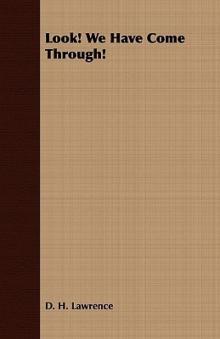 Look! We Have Come Through!
Look! We Have Come Through!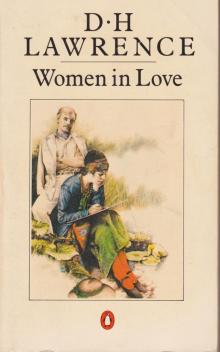 Women in Love
Women in Love The Ladybird
The Ladybird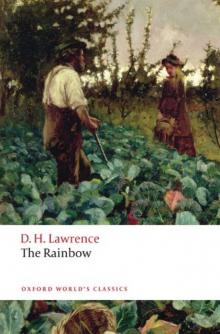 The Rainbow
The Rainbow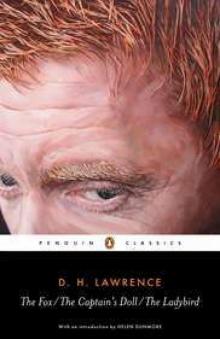 The Captain's Dol
The Captain's Dol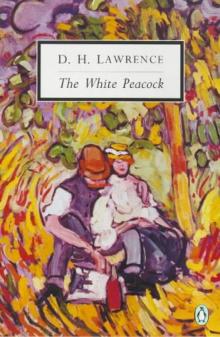 The White Peacock
The White Peacock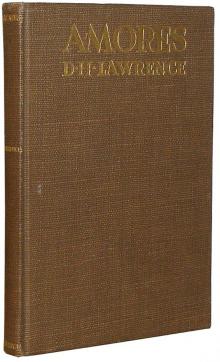 Amores
Amores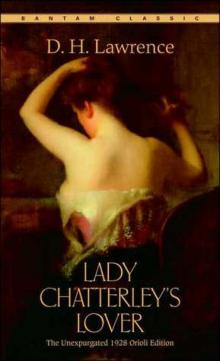 Lady Chatterley's Lover
Lady Chatterley's Lover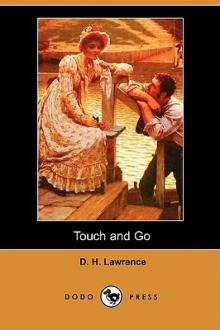 Touch and Go
Touch and Go The Wintry Peacock
The Wintry Peacock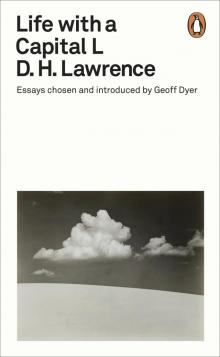 Life with a Capital L
Life with a Capital L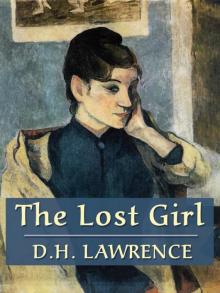 The Lost Girl
The Lost Girl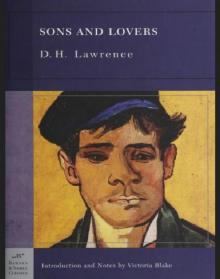 Sons and Lovers
Sons and Lovers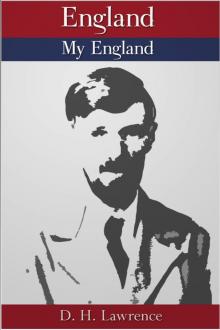 England, My England
England, My England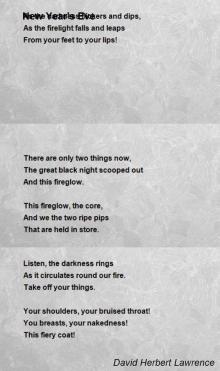 New Poems
New Poems Twilight in Italy
Twilight in Italy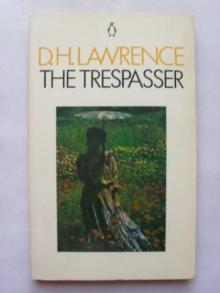 The Trespasser
The Trespasser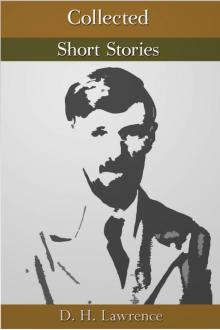 The Collected Short Stories
The Collected Short Stories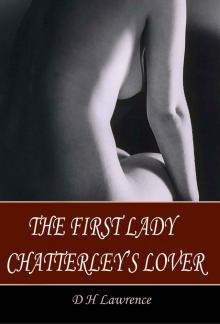 The First Lady Chatterley's Lover
The First Lady Chatterley's Lover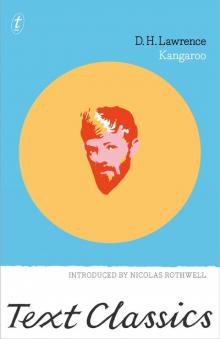 Kangaroo
Kangaroo Bay
Bay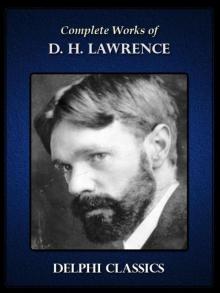 Complete Works of D.H. Lawrence
Complete Works of D.H. Lawrence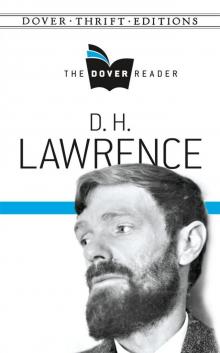 D H Lawrence- The Dover Reader
D H Lawrence- The Dover Reader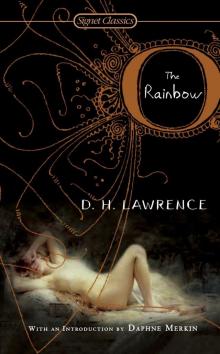 The Rainbow (100th Anniversary ed.)
The Rainbow (100th Anniversary ed.)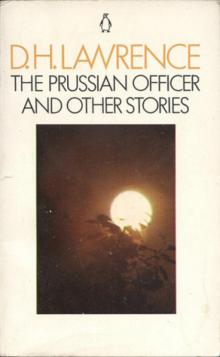 The Prussian Officer
The Prussian Officer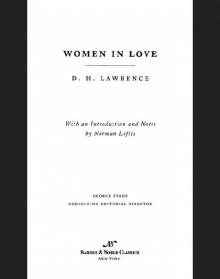 Women in Love (Barnes & Noble Classics Series)
Women in Love (Barnes & Noble Classics Series)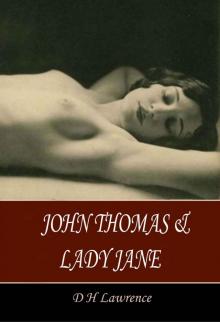 John Thomas and Lady Jane
John Thomas and Lady Jane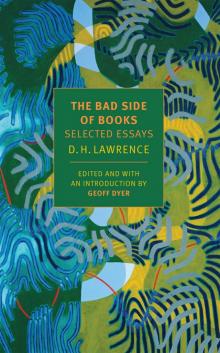 The Bad Side of Books
The Bad Side of Books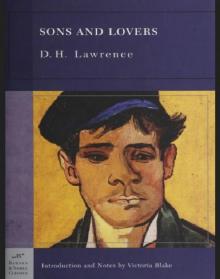 Sons and Lovers (Barnes & Noble Classics Series)
Sons and Lovers (Barnes & Noble Classics Series) Selected Stories
Selected Stories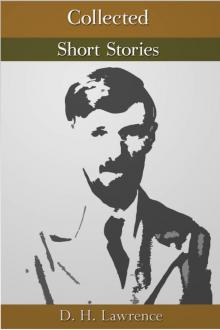 Collected Short Stories
Collected Short Stories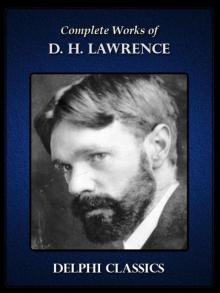 Complete Works of D.H. Lawrence (Illustrated)
Complete Works of D.H. Lawrence (Illustrated)